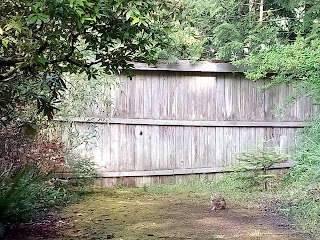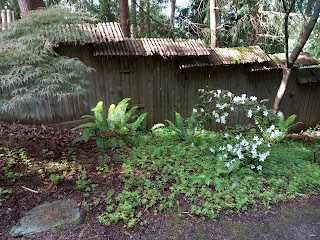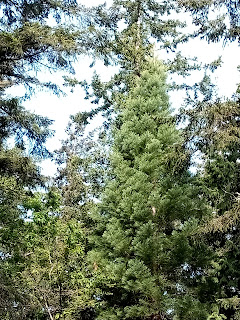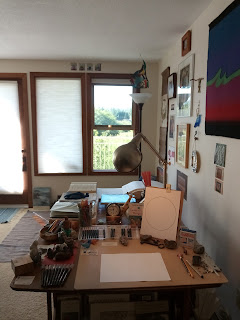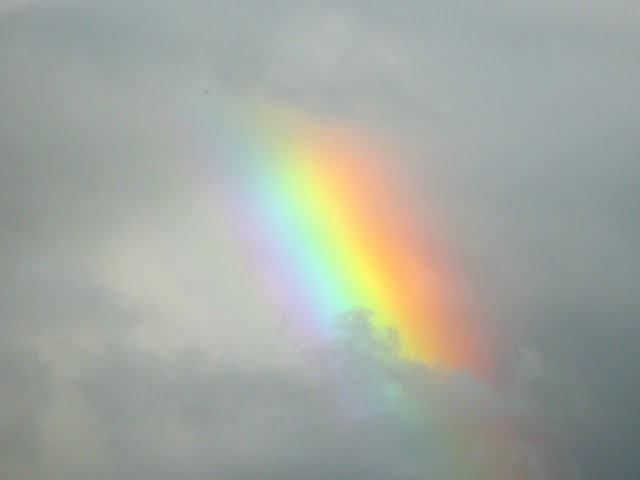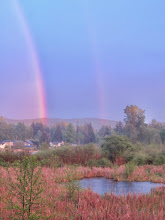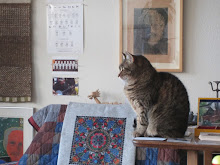Tuesday, June 28, 2022
Update: Heiroglyph sky in the early morning / Fast-moving clouds and swallows in the deep blue sky / Against all odds
Sunday, June 26, 2022
"Is America Possible?"/ "... Whatever you do, we are going to let our light shine ..." / Young tree finds a home / "... A passion so intense ..."
....Whenever somebody jokes about “Kum Bah Ya,” my mind goes back to the Mississippi summer experience where the movement folks in Mississippi were inviting co-workers to come from all over the country, especially student types, to come and help in the process of voter registration, and Freedom School teaching, and taking great risks on behalf of the transformation of that state and of this nation. There were two weeks of orientation. The first week was the week in which Schwerner and Goodman and their beloved brother Jimmy were there. And it was during the time that they had left the campus that they were first arrested, then released, and then murdered.
The word came back to us at the orientation that the three of them had not been heard from. Bob Moses, the magnificent leader of so much of the work in Mississippi, got up and told these hundreds of predominantly white young people that, if any of them felt that at this point they needed to return home or to their schools, we would not think less of them at all, but would be grateful to them for how far they had come.
But he said let’s take a couple of hours just for people to spend time talking on the phone with parents or whoever to try to make this decision and make it now. What I found as I moved around among the small groups that began to gather together to help each other was that, in group after group, people were singing “Kum Bah Ya.” “Come by here, my Lord, somebody’s missing, Lord, come by here. We all need you, Lord, come by here.”
I could never laugh at “Kum Bah Ya” moments after that because I saw then that almost no one went home from there. They were going to continue on the path that they had committed themselves to. And a great part of the reason why they were able to do that was because of the strength and the power and the commitment that had been gained through that experience of just singing together “Kum Bah Ya" ..."
They said, look, there was a lot of social turmoil then. There were assassinations, right? I mean, many assassinations. But this journalist said — and I just want to know what you think — he said that he thought the difference between the 1960s and now was that even though there was incredible tumult and violence, it was at the very same time a period of intense hope, and people could see that they were moving towards goals. And that that’s missing now. What do you think about that analysis?
Vincent Harding: Hmm. Krista, I think that is such a complicated kind of issue that I can only pick at it and tease it out and play with it in the best sense of play. I think that what I see now is the fact that all over this country, wherever I go, and, of course, where I go tends to be sort of self-selective because I am most often going into situations where people are operating out of a sense of hope and possibility, where in their local situations, whether it be Detroit, or Atlanta, or a campus someplace, or a church community in Philadelphia, that there are women and men and young people who are operating out of hope.
My sense is that, in the ‘60s, there was probably a larger kind of canopy of hope that we could see, and we could identify, and that people could name and focus on. Now, we are in particular spots, locations, sometimes seemingly isolated. But I feel that there are points, focal situations, where that is still available and where people are operating from that.
So I think that it is not simply the matter of hope or no hope. I have a feeling that one of the deeper transformations that’s going on now is that for the white community of America, there is this uncertainty growing about its own role, its own control, its own capacity to name the realities that it has moved into a realm of uncertainty that it did not allow itself to face before.
And I think that that’s the place that we are in, and that’s even more the reason why we’ve got to figure out what was King talking about when he was seeing the possibility of a beloved community and recognized that, maybe, for some of us, that cannot come until some of us realize that we must give up what we thought was only ours in the building of a beloved nation. Can there be a beloved nation? Why don’t we try and see?
*
When to my melancholyAll is follythen the whirr of the hummingbird at intervals throughout the day is all that’s sure to stir me, makes me jump up, scattering papers, books, pens— To the bay window, and certainly, there he is below it true-aimed at the minute cups of Coral Bells, swerving perfectly, the fierce, brilliant faith that pierces the heart all summer and sips bitter insects steeped in nectar, prima materia of gleam-and-speed-away A passion so intense
It driveth sorrow hence ...
Friday, June 24, 2022
Update: It's A Troubling Day as Roe vs Wade is overturned / "... Receiving Hexagram 54 often reflects a very insecure, frustrating situation ..."
Wednesday, June 22, 2022
Extended Meditation on Fathers and Missing Fathers and The Orchardist, by Amanda Coplin / Update with additional relevant photos added / And now an update when a relevant quote appeared
1. My father during World War II. There was something about my father that was missing, although he was present.
2. My father's father in the early 1900s. First child in the family to be born in the United States, his two older brothers having been born in Norway. Two of his younger siblings died during a smallpox epidemic when my grandfather was a young boy. The family had a farm on what had recently been Dakota land in Western Minnesota.
3. My father's mother's father and grandfather (first on the left in the top row and on the far right). My great grandfather was born in the United States. My great great grandfather was born in Norway. They had a farm on what had recently been Dakota land south and east of Minneapolis.
My great grandmother is the second person from the right in the top row. Her mother came with her family from Norway when she was a young woman. A few years after their arrival in Iowa, she became pregnant while working as a domestic servant for a family in Prairie du Chien, Wisconsin. There is a record of the birth and christening of my great grandmother and the name of her father who disappeared from her life. He was said to be German. My research shows that his mother was either English, Irish, Welsh or Scottish (I have recently found a distant cousin on Ancestry.com who looks very much like me and my first cousins on my father's side). My great grandmother's mother died when she was 6 years old. She was raised by her grandparents and then her mother's brother and his wife. She went to college and became a teacher. She met my great grandfather at St. Olaf College in Minnesota.
4. My fatherless great grandmother, a few years after her mother died.
5. I have no photo of the younger sister of the great great grandfather who settled on Dakota land south and east of Minneapolis and have often wondered about her life. That sister remained in Norway and, at age 30, gave birth to a daughter whom she raised alone, working as a laborer on a farm near where she was born.
*
1. My mother during the years her father was serving as a doctor in the U.S. Army in World War I in France. She was two years old when he left for war and 3 years old when he returned.
2. My mother's father as a boy soon after his father disappeared in the 1870s. He had a younger sibling who died as an infant in a cholera epidemic in Boston some years before my grandfather was born there. My grandfather's parents were both young people from Germany -- his mother from the Achern in the Black Forest and his father from Stadtlengsfeld.
3. My mother's father in his Army uniform in 1918.
4. My mother's father arriving home from war in 1919. Before returning to the United States, he had spent a short time in England and Ireland. My grandmother brought my uncle and my mother to Boston to meet him. I just noticed how my mother is holding my grandfather's finger and how lost my uncle looks. I wonder who took the photo. Could it be my mother's grandfather, seen in the following photo?
5. My mother's mother's father who had roots in London in the 1700s, with the family leaving England for Canada and then leaving Canada for Boston. At one time my great grandfather was the president of the Theosophical Society in Boston.
Boston was built on what had been the land of the Massachusett tribe.
*
When I visited a friend last week, she had three books that she was giving away. She said that The Orchardist was the best of the three and so I took it home with me. Something prompted me to begin reading it immediately. It wasn't long before I wondered if I should keep reading. The story was becoming disturbing to me on a deep level, but then I remembered how many times I started reading Beloved before I was able to read beyond about the same place in that book. I kept reading The Orchardist and, at times, felt that there was much about the story that reminded me of Beloved. There was also something of the beauty and melancholy of Richard Brautigan's writing and that of his daughter Ianthe, something universal, archetypal, unsettling and yet filled with an odd clarity about missing fathers, shattered families, hard-won healing in later generations, and strong families that can be formed by people unrelated by blood.
It turns out the young woman who wrote The Orchardist was strongly influenced by Beloved.
One of the main characters in The Orchardist, Clee, is Nez Perce and a childhood and lifelong friend of Talmadge who, along with a woman friend of his, steps forward in the role of parent to two young girls who are alone in the world. The fruit orchard he tends so lovingly is on Wenatchi land, about 300 miles from where the Nez Perce live today. The story begins with the death of Talmadge's father. His mother brings him and his younger sister to live and work in an apple orchard near the Columbia River in Eastern Washington State.
The story takes place in the years that my fatherless great grandmother was growing up on her grandparent's farm in Iowa, where Winnebago, Sauk, Fox, and Oneota people had once lived and brings into focus so many family histories of settlers and indigenous people. So many missing fathers, along with men who step forward to father the children of other men.
The Orchard, like Beloved, is a book I will read again. Not immediately but eventually. I first read Beloved in the 1980s and then again in this past year. I don't have time to wait that long to re-read The Orchardist.
*
Synchronicity? Just now I was given more to meditate on via Beth at Alive On All Channels:
Sometimes when you are devastated you want not a reprieve but a mirror of your condition or a reminder that you are not alone in it. Other times it is not the propaganda or the political art that helps you face a crisis but whatever gives you respite from it.
Tuesday, June 21, 2022
This first bloom appeared on Summer Solstice 2022
Monday, June 20, 2022
Juneteenth Federal Holiday Meditation 2022
Saturday, June 18, 2022
We were young women from the high school class of 1967 / Being there then and now, here and now
Thursday, June 16, 2022
Represented
*
*
*
Debra Lekanoff and Alex Ramel are the State Representatives from Washington State's 40th Legislative District, which is where I live. Liz Lovelett is the State Senator for the 40th Legislative District. They give me hope for the future of the Democratic Party but even more for the future in general.
Monday, June 13, 2022
June afternoon sky / More listening during yoga practice
... And you live that you’re already there, that you’re already in that community, part of that sense of one family, one house. If you visualize it, if you can even have faith that it’s there, for you it is already there. And during the early days of the movement, I believed that the only true and real integration for that sense of the beloved community existed within the movement itself ...
*
... Because in the final analysis, we did become a circle of trust, a band of brothers and sisters. So it didn’t matter whether we’re Black or white. It didn’t matter whether you came from the North, to the South, or whether you’re a Northerner or Southerner. We were one.
But at the same time, I would tell my members of my own family and members of the Student Nonviolent Coordinating Committee and members within the movement, within S.N.C.C and S.C.L.C and others, I’ve always said, “Pace yourself, pace yourself.” I would tell my wife and say, “Every fight is not your fight. Pace yourself.” And I would say it to the young people and others sometime, “Don’t get in a hurry. Our struggle is not a struggle that lasts for one day, one week, one month or one year or one lifetime. It is an ongoing struggle.” ...
*
... Well, I think about it, but you have to believe there may be setbacks, there may be some disappointments, there may be some interruption. But, again, you have to take the long, hard look. With this belief, it’s going to be OK; it’s going to work out. If it failed to happen during your lifetime, then maybe, not maybe, but it would happen in somebody’s lifetime. But you must do all that you can do while you occupy this space during your time. And sometimes I feel that I’m not doing enough to try to inspire another generation of people to find a way to get in the way, to make trouble, good trouble. I just make a little noise ...
Sunday, June 12, 2022
Looking at the mid-June sky / Listening while doing yoga practice / "What If We Get This Right?"
*
This poem by a young woman was read during the interview with Ayana Elizabeth Johnson titled "What If We Get This Right?"
"On Another Panel About Climate, They Ask Me to Sell the Future and All I’ve Got Is a Love Poem."
“What if the future is soft and revolution is so kind that there is no end to us in sight.
“Whole cities breathe and bad luck is bested by a promise to the leaves.
“To withstand your own end is difficult.
“The future frolics about, promised to no one, as is her right.
“Rage against injustice makes the voice grow harsher yet.
“If the future leaves without us, the silence that will follow will be an unspeakable nothing.
“What if we convince her to stay?
“How rare and beautiful it is that we exist.
“What if we stun existence one more time?
“When I wake up, get out of bed, my seven year old cousin
“with her ruptured belly tags along.
“Then follows my grandmother, aunts, my other cousins
and the violent shape of their drinking water.
“The earth remembers everything,
our bodies are the color of the earth and we
are nobodies.
“Been born from so many apocalypses, what’s one more?
“Love is still the only revenge. It grows each time the earth is set on fire.
“But for what it’s worth, I’d do this again.
Gamble on humanity one hundred times over
“Commit to life unto life, as the trees fall and take us with them.
“I’d follow love into extinction.”
-- Ayisha Saddiqa
(Note: I was unable to get the font sizes to match each other in this poem which was copied from the transcript of the interview with Ayana Elizabeth Johnson)







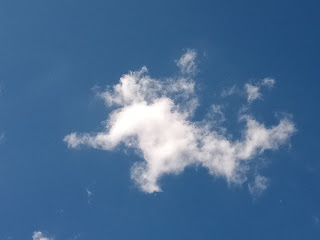

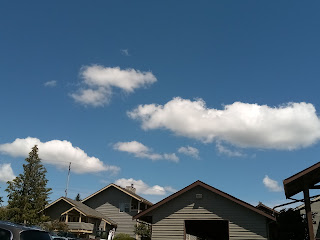
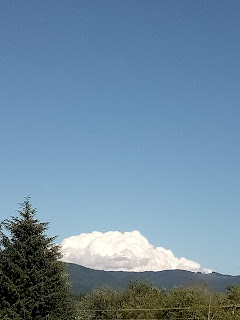





.jpg)












.jpg)









